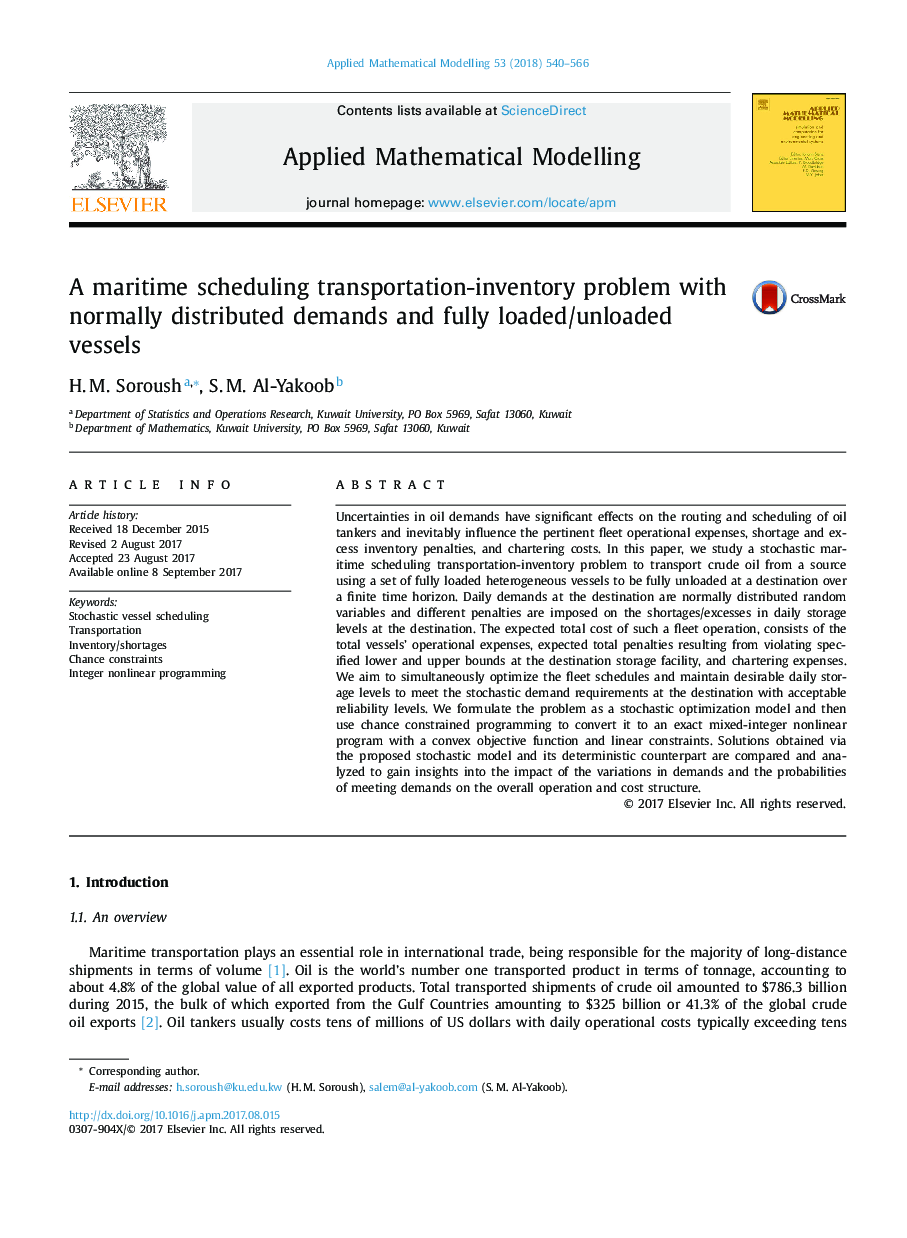| Article ID | Journal | Published Year | Pages | File Type |
|---|---|---|---|---|
| 5470851 | Applied Mathematical Modelling | 2018 | 27 Pages |
Abstract
Uncertainties in oil demands have significant effects on the routing and scheduling of oil tankers and inevitably influence the pertinent fleet operational expenses, shortage and excess inventory penalties, and chartering costs. In this paper, we study a stochastic maritime scheduling transportation-inventory problem to transport crude oil from a source using a set of fully loaded heterogeneous vessels to be fully unloaded at a destination over a finite time horizon. Daily demands at the destination are normally distributed random variables and different penalties are imposed on the shortages/excesses in daily storage levels at the destination. The expected total cost of such a fleet operation, consists of the total vessels' operational expenses, expected total penalties resulting from violating specified lower and upper bounds at the destination storage facility, and chartering expenses. We aim to simultaneously optimize the fleet schedules and maintain desirable daily storage levels to meet the stochastic demand requirements at the destination with acceptable reliability levels. We formulate the problem as a stochastic optimization model and then use chance constrained programming to convert it to an exact mixed-integer nonlinear program with a convex objective function and linear constraints. Solutions obtained via the proposed stochastic model and its deterministic counterpart are compared and analyzed to gain insights into the impact of the variations in demands and the probabilities of meeting demands on the overall operation and cost structure.
Related Topics
Physical Sciences and Engineering
Engineering
Computational Mechanics
Authors
H.âM. Soroush, S.âM. Al-Yakoob,
